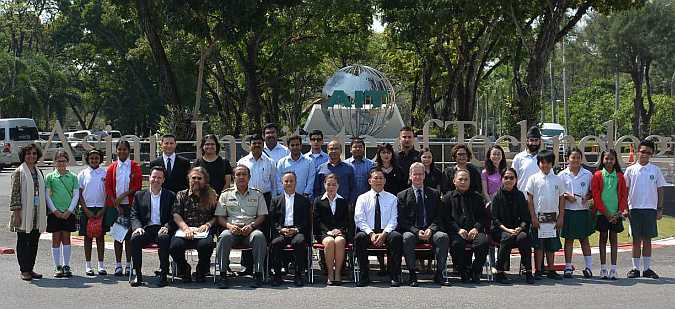Presenting an action agenda that can be initiated by citizens, Dr.
Klairoong suggested the greater use of recycled and sustainable
products, and staying away from furniture produced from rainforests
products. Recycling of mobile phones can help reduce mineral
extraction, which is harmful to the natural habitat of gorillas, she
said. Similarly, minimising the use of palm oil and reducing products
that threaten the habitat of threatened and endangered species can also
contribute towards wildlife conservation, she added.
Dr. Klairoong advised against the purchase of products that use
tortoise shells, ivory, animal furs (particularly of endangered
species), and crocodile skin. Harassment and cruelty towards wildlife
needs to be stopped, and she requested citizens to report on such
behavior to appropriate authorities. She also suggested that people
should be cognisant of the impact their lives have on wildlife. While
purchasing a house, do consider the impact it has on the habitat, she
added.
The World Wildlife Day celebrations at AIT began with a video titled
“Listen to Young Voices from AIT,” which includes students and young
children who shared their opinions on wildlife. (Watch the
VIDEO: https://youtu.be/ufiD1DlA2yo)
Dr. Robert Mather, Chief of Party, USAID Wildlife Asia spoke about the
project “Wildlife Asia Activities.” Mr. Surendra Shrestha, AIT’s Vice
President for Development delivered the opening remarks. The
presentation on UNDP’s Community Engagement against Illegal Wildlife
Trade was delivered on behalf of Mr Doley Tshering, Regional Technical
Adviser. Dr. Somying Thunhikorn, Director, Division of Wildlife
Research, Department of National Parks, Wildlife and Plant
Conservation, elaborated on public participation in wildlife
management. Mr. Manesh Lacoul, Deputy Director WEMS Secretariat, AIT
Solutions spoke about Wildlife Enforcement Monitoring System.


